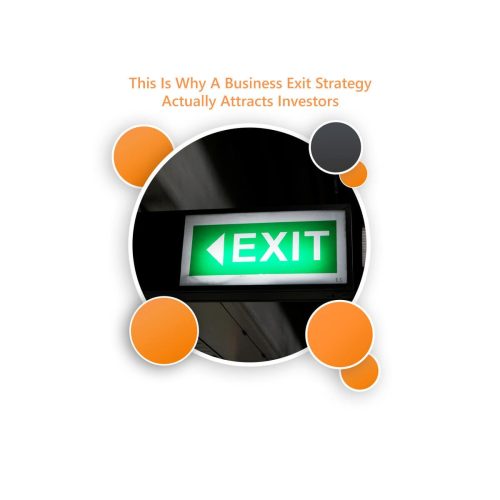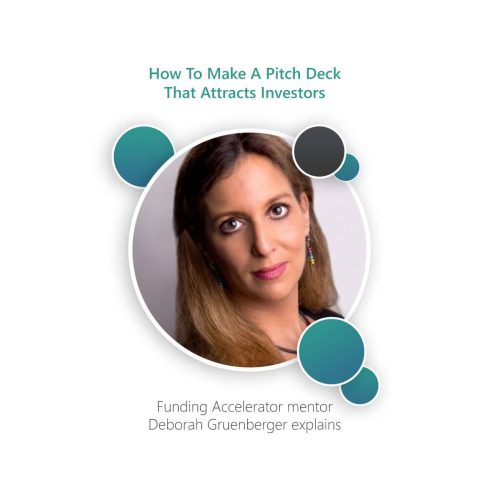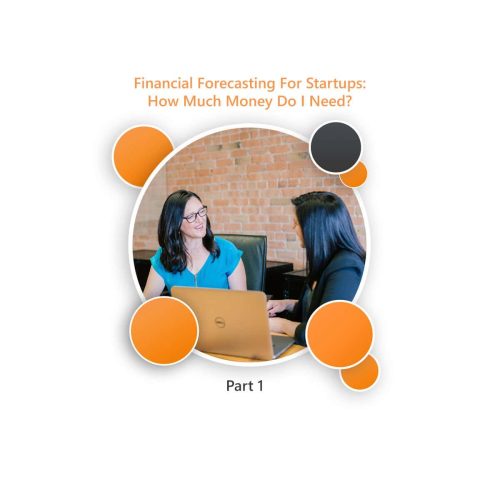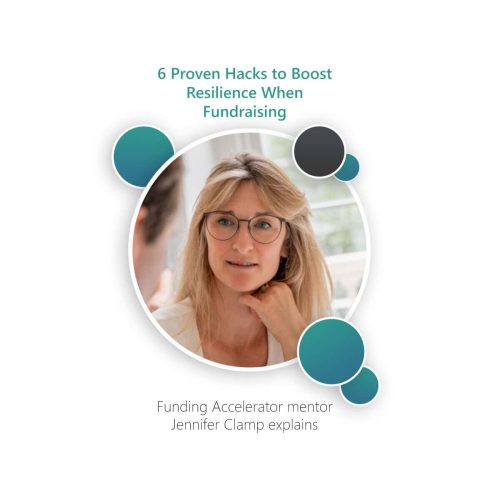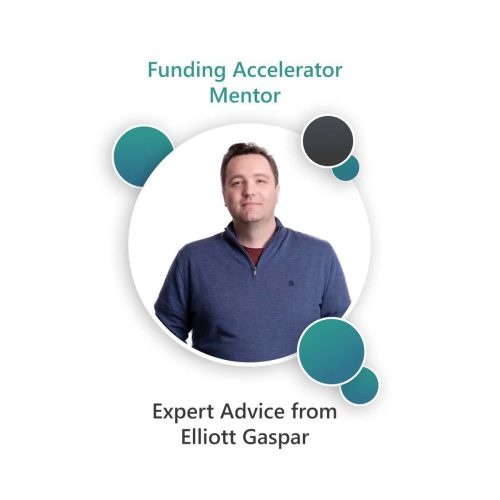As a founder, you wear a lot of hats. From navigating product development to sorting out sales and marketing strategies and all the while managing cash to maximise your runway! It can feel like you’re carrying the world on your shoulders – especially if you are an early-stage business and don’t have the budget to grow your team to help. But what if you didn’t have to go it alone? What if you could surround yourself with a group of experienced professionals who could offer guidance and insight so you didn’t have to shoulder everything alone? This is what an informal advisory board can potentially offer your business.
In this blog, we’ll explore why building an informal advisory board could be one of the smartest moves, especially if you’re navigating early growth on a tight budget, and need to make better decisions, cost effectively.
1. Surrounding yourself with the Expertise you need
People liken growing a business to running a marathon. But, most professional athletes surround themselves with a support team of sports coaches, physios, nutritional experts and motivational gurus to help them achieve their goals. As a founder, you have the opportunity to do the same with an informal advisory board. A group of people who can plug gaps in your experience, share wisdom from their own experience of running businesses and keep you on track and motivated. The beauty of an informa advisory board is you can adapt and change your board as your knowledge builds and your business grows. You don’t necessarily need to draft complex contracts or pay hefty fees. This is about getting clear about what you need and out to individuals who have skills and experience you want to tap into, asking for support from people you trust and admire.Why it matters:
- You get access to expertise without needing to build a formal board so that you keep flexibility as your business grows.
- Rather than negotiate equity remuneration packages or formal agreements, this is about asking for advice and informal support.
- You can request support from different advisors for different needs, whether it’s strategy, finance, or marketing – and adapt and adjust the support as you needs change.
2. Fresh Perspectives = Better Decisions
When you’re deep in the weeds of running your business, it’s easy to develop tunnel vision. An informal advisory board offers fresh perspectives, people who aren’t tied to the day-to-day operations and can see things more objectively. They might spot opportunities or risks that you’ve overlooked or help you think outside the box when tackling tricky problems. They can also help you keep you focused on the real priorities without being distracted by “new and shiny” opportunities which don’t really build value in your business.
Sometimes, a five-minute chat with someone who’s “been there, done that” can give you clarity, provide new perspectives or options and help you make more informed, strategic decisions.
Why it matters:
- A fresh set of eyes can often spot what you can’t.
- Helps you avoid getting stuck in your own echo chamber of ideas.
- You can quickly test ideas or strategies before making big decisions, and be sure your seeing a decision from all perspectives.
3. Avoid Costly Mistakes
One of the most significant benefits of having an informal advisory board is the ability to avoid making costly mistakes. Advisors bring years of experience and can warn you about common pitfalls they’ve encountered, so you don’t have to learn the hard way. Whether it’s hiring the wrong people, wasting resources on ineffective marketing strategies, or underestimating financial planning, these are mistakes that can be put behind you if you’ve got the right people guiding you.
Rather than reinventing the wheel, you can learn from the experience of others, both the successes and the setbacks, and apply these lessons to your own journey.
Why it matters:
- Helps you sidestep mistakes that can drain your time and resources.
- Accelerates your learning curve as a founder.
- Advisors can provide solutions that you may not have considered.
4. Keep Your Runway Intact
For many startups, keeping the burn rate low and maximising runway (how long your business can survive with its current resources) is essential. Formal advisory boards usually require remuneration , whether it’s in the form of cash, equity, or other benfitss. With an informal advisory board, it can be possible to keep things lean as you are generally only looking for advice to cover the early-stage of your company’s development, or for a specific project. If the time commitment is limited, the expectation of remuneration can be different and more aligned with a start-up budget.
Since these relationships are often based on goodwill, respect, and mutual benefit, you get top-tier advice without the drain on your budget, meaning more cash for growing your business.
Why it matters:
- Helps you extend your runway by avoiding costly equity or salary commitments.
- Keep overheads low, so you can use your resources for growth, not bureaucracy.
- You can still receive world-class advice without burning through your cash.
5. Flexibility: Advisors When You Need Them
Unlike a formal board that may require regular meetings and updates, an informal advisory board is more flexible. You can lean on them only when you need to. Whether you’re facing a critical decision or need advice on a specific area like fundraising, legal challenges, or market entry, you can call on your advisors at the right moment.
Since it’s all informal, there’s no pressure to hold constant meetings or follow rigid structures. You get the flexibility to adapt your advisory input to fit your needs, making it a much lighter touch than a formal board.
Why it matters:
- You get advice when you need it without the commitment of regular meetings.
- Flexibility allows you to adjust the level of input based on your evolving needs.
- You can easily expand or pivot your advisory team as your business grows.
6. Build Stronger Relationships
Building an informal advisory board also gives you the chance to form strong, long-lasting relationships with people who genuinely care about your success. It’s less transactional than a formal board setup, which can sometimes feel stiff or tied to financial rewards. Many advisors, especially those who’ve been through the startup grind, are often eager to give back and support the next generation of entrepreneurs.
This can lead to deeper, more personal connections where your advisors become invested in your journey, not just because of potential returns, but because they’re excited to help you succeed.
Why it matters:
- Creates more genuine, lasting relationships with advisors.
- You get access to mentors who are personally invested in your success.
- Advisors often open up their own networks, helping you grow even further.
How to Start Building Your Informal Advisory Team
Ready to build your own informal advisoryboard? Here’s some ideas to get started:
- Identify Your Gaps: Think about where you could use the most help. Do you need advice on finance? Marketing? Strategy? Pinpointing your weak spots will help you find the right advisors.
- Tap into Your Network: Start by reaching out to people in your existing network who you respect and trust. Pick people who have the skills you want to access, or who have previously run successful businesses. If you don’t know where to start, ask fellow founders or mentors to make introductions.
- Be Upfront About Expectations: When approaching potential advisors, be clear about what you’re asking for, whether it’s an occasional coffee chat or advice on a specific issue. This ensures that everyone’s on the same page from the get-go.
- Build Relationships: Take the time to get to know your advisors. Don’t just ask for advice, stay in touch, share your progress, and genuinely build a connection.
- Be Respectful of Their Time: While your advisors are there to help, they’re also busy with their own projects. Respect their time and expertise, and always show appreciation for the value they bring.
The Power of Informal Advisors
Building an informal advisory board can be one of the smartest decisions you make as a founder. You’ll gain access to invaluable expertise, avoid costly mistakes, and make better decisions, all without the need for formal structures or hefty costs. Whether you’re navigating growth, raising funding, or simply trying to keep your head above water, having a few experienced voices in your corner can make all the difference.
After all, you don’t have to do it all alone, so why would you?
Want to dig deeper into this topic?
Read Funding Accelerator mentor, Julia Elliott Brown’s advice on how having an Advisory Board makes it easier to raise investment
- How to Find Investors (Without Losing Your Mind) - June 17, 2025
- How to Raise Money (Without Losing the Plot) - June 9, 2025
- How I Raised £250K – and Help Other Founders Scale with Equity Funding - June 9, 2025



